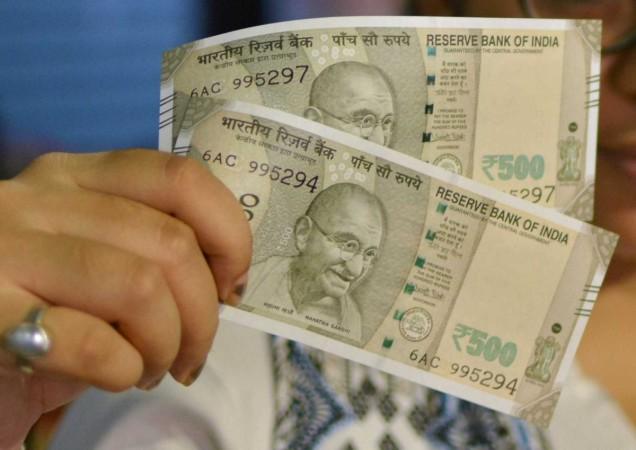
Cash won't be king for Indians if the Narendra Modi government makes yet another move, after proposing to tax cash transactions beyond Rs 3 lakh, effective from April 1. It is now being speculated that the government could follow it up by imposing limit on cash holdings.
If the Prime Minister and Union Finance Minister Arun Jaitley indeed do that, they will be accepting the second suggestion of the Supreme Court-appointed Special Investigation Team (SIT) on black money, the first being the Rs 3 lakh cap.
"If no limit to cash holding is imposed, we may lose the benefits of demonetisation quite soon," SIT Chairman Justice M B Shah and Vice- Chairman Justice Arijit Pasayat wrote in a letter to Jaitley in November 2016, days after PM Modi announced his note ban decision.
The recommendation on placing such limits was made in July 2016.
"SIT has suggested an upper limit of Rs 15 lakh on cash holding. Further, stating that in case any person or industry requires holding more cash, it may obtain necessary permission from the Commissioner of Income tax of the area," the finance ministry had said on July 14, citing the recommendations of the fifth SIT Report.
The role of the SIT recommendations on curbing black money was acknowledged by Jaitley while presenting the Budget for 2017-18.
"The SIT set up by the government on black money has suggested that no transaction above Rs 3 lakh should be permitted in cash. The government has decided to accept this proposal," he had said in his Budget speech.
Cash withdrawals and deposits, whether at bank branches or at ATMs, are now subject to a slew of restrictions at India's top three private sector lenders — ICICI Bank, HDFC Bank and Axis Bank. It is not clear whether public sector banks would follow suit.
As of December 31, 2016, Axis Bank had 3,211 domestic branches and extension counters situated in 1,946 centres, and 13,726 ATMs.
HDFC Bank had 4,555 branches and 12,087 ATMs across India, while ICICI Bank had 4,501 branches and 14,271 ATMs in India.
The Finance Bill containing Budget 2017-18 proposals will be passed by the Parliament when it re-convenes for the second half of the Budget Session on March 9.







!['Abhishek will win national award': Abhishek Bachchan's poignant act will tug your heartstrings in slice of life emotional saga I Want To Talk [trailer review]](https://data1.ibtimes.co.in/en/full/805617/abhishek-will-win-national-award-abhishek-bachchans-poignant-act-will-tug-your-heartstrings.jpg?w=220&h=138)



